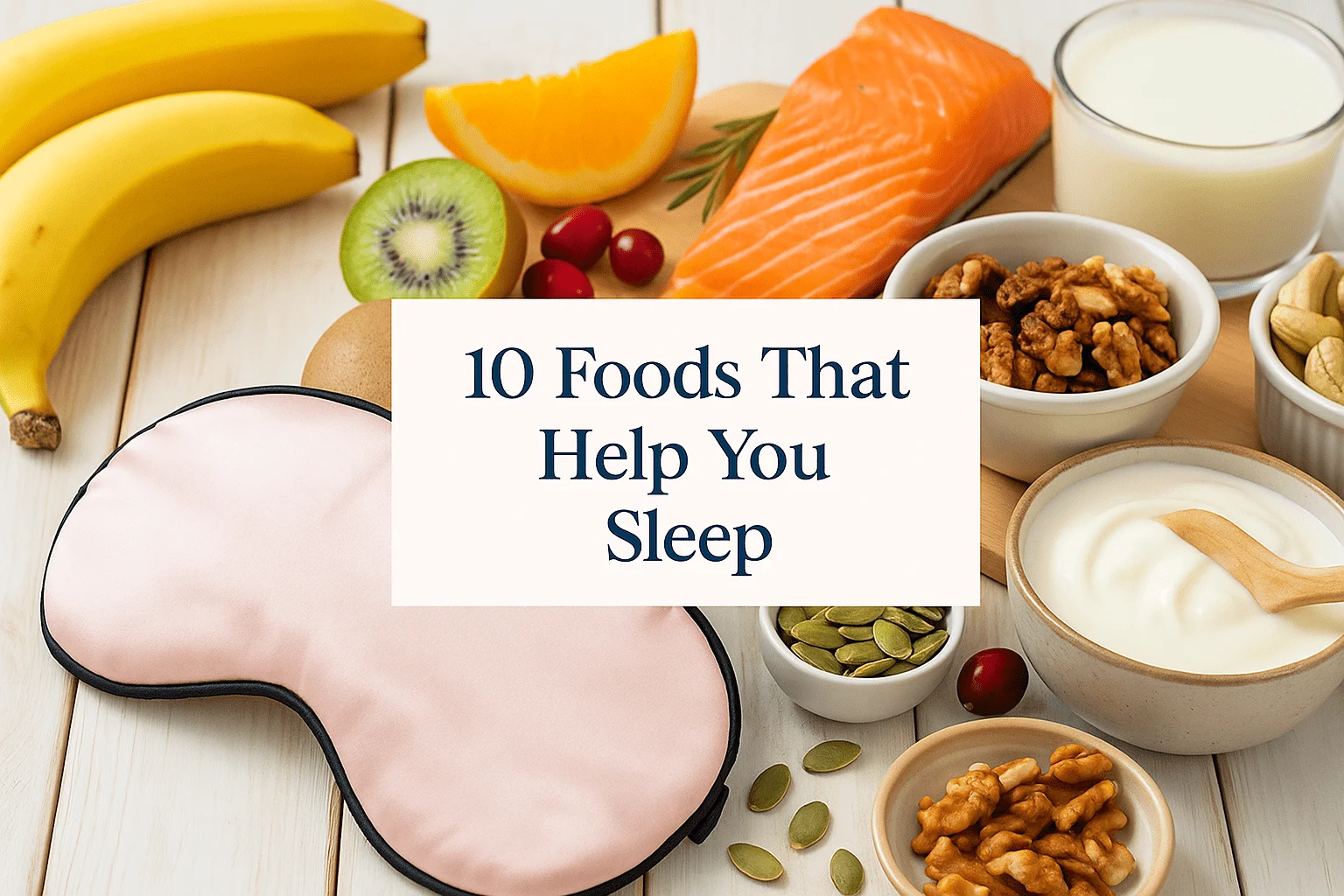Most people don’t think twice about their evening snacks or dinner habits. But the truth is, some foods can actually nudge your body into a deeper, more restful state — no melatonin pills required. And no, I’m not talking about warm milk or turkey leftovers.
There’s a whole world of foods that help you sleep — naturally and often in surprising ways. You just have to know what to reach for (and when to eat it).
If you’ve already tried the usual sleep advice — shutting down screens, sipping tea, cutting caffeine — and you’re still tossing and turning, maybe it’s time to look at your plate.
Here’s the thing: food isn’t just fuel. It affects your brain, your hormones, even your nervous system. Certain ingredients are rich in melatonin, magnesium, or tryptophan — all key players in getting quality rest. Others help regulate blood sugar or support your gut, which, surprisingly, has a lot more to do with sleep than most people think.
In this post, we’ll explore:
- 10 unexpected foods that help you sleep (some of which might already be in your kitchen)
- How and when to eat them for the best effect
- Plus some fruits, herbs, and drinks that promote calm from the inside out
Let’s dig in — your next good night’s sleep might start with your next grocery list.
How Food Affects Your Sleep Cycle
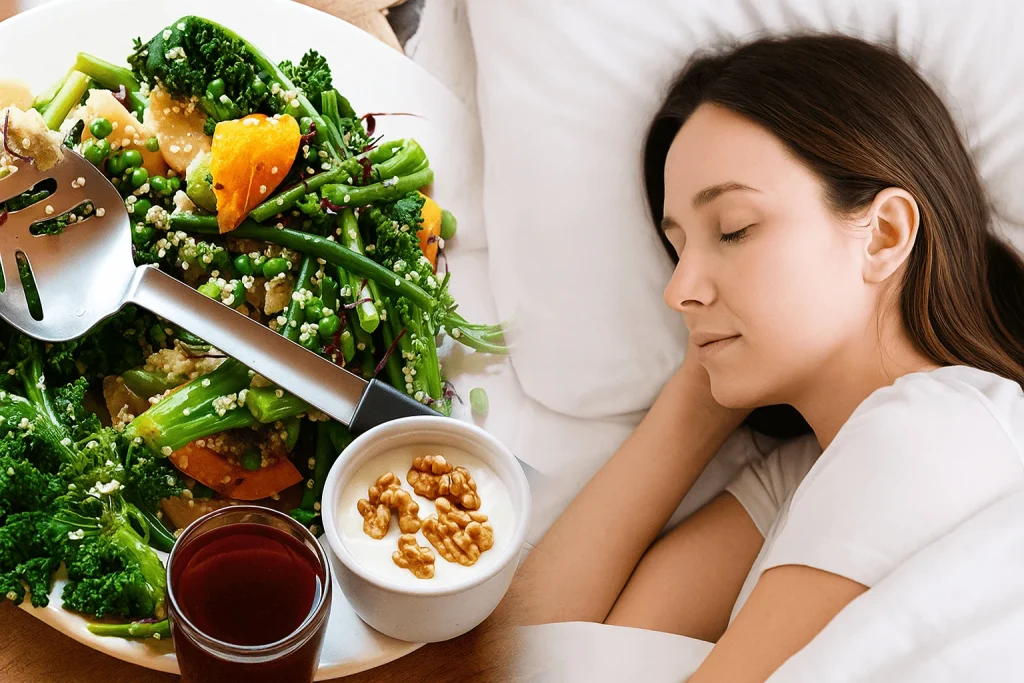
You’ve heard the phrase “you are what you eat” — but when it comes to sleep, it’s more like “you rest how you eat.” What you put on your plate during the day and especially in the evening can directly influence how easily you fall asleep, how deeply you stay asleep, and how refreshed you feel in the morning.
Let’s break down the science behind why certain foods help you sleep, while others might be quietly working against you.
1. Sleep-Supporting Nutrients Your Body Needs
Some foods are naturally rich in compounds your body uses to promote sleep. Here are a few heavy hitters:
- Tryptophan – an amino acid that helps your brain make serotonin and melatonin (you’ll find it in foods like turkey, oats, and seeds)
- Magnesium – helps calm your nervous system and supports deeper sleep (found in pumpkin seeds, leafy greens, nuts)
- Melatonin – the hormone that signals to your body it’s time to rest (naturally present in foods like tart cherries and walnuts)
- Calcium – helps the brain use tryptophan to produce melatonin (found in dairy like yogurt and kefir)
You don’t need a supplement for these. A well-chosen evening snack can do the trick.
2. Blood Sugar Swings = Sleep Disruptions
Ever wake up at 3 a.m. for no reason? Blood sugar may be to blame.
Spikes and crashes in your glucose levels — especially after a sugary or carb-heavy meal — can trigger cortisol (your stress hormone) and interrupt sleep. That’s why balanced nighttime eating matters.
✅ Aim for:
- A combo of protein + complex carbs
- Avoiding refined sugar or heavy meals within 1–2 hours of bed
- Even small changes here can reduce those middle-of-the-night wakeups.
3. Your Gut Plays a Bigger Role Than You Think
Here’s something most people don’t realize: around 90% of your body’s serotonin (the feel-good, calm-you-down neurotransmitter) is made in your gut.
That means your digestion and microbiome play a major role in sleep regulation. Foods that support gut health — like fermented foods (think miso, kefir, yogurt) and fiber-rich veggies and fruits — can improve both mood and sleep quality over time.
And when your gut is calm? Your nervous system follows suit.
10 Unexpected Foods That Actually Help You Sleep
We’re skipping the usual suspects here. No chamomile. No warm milk. These are real foods — some a little quirky, some you probably already have at home — that are backed by research or long-standing tradition to promote better sleep.
Let’s break them down one by one.
1. Kiwi
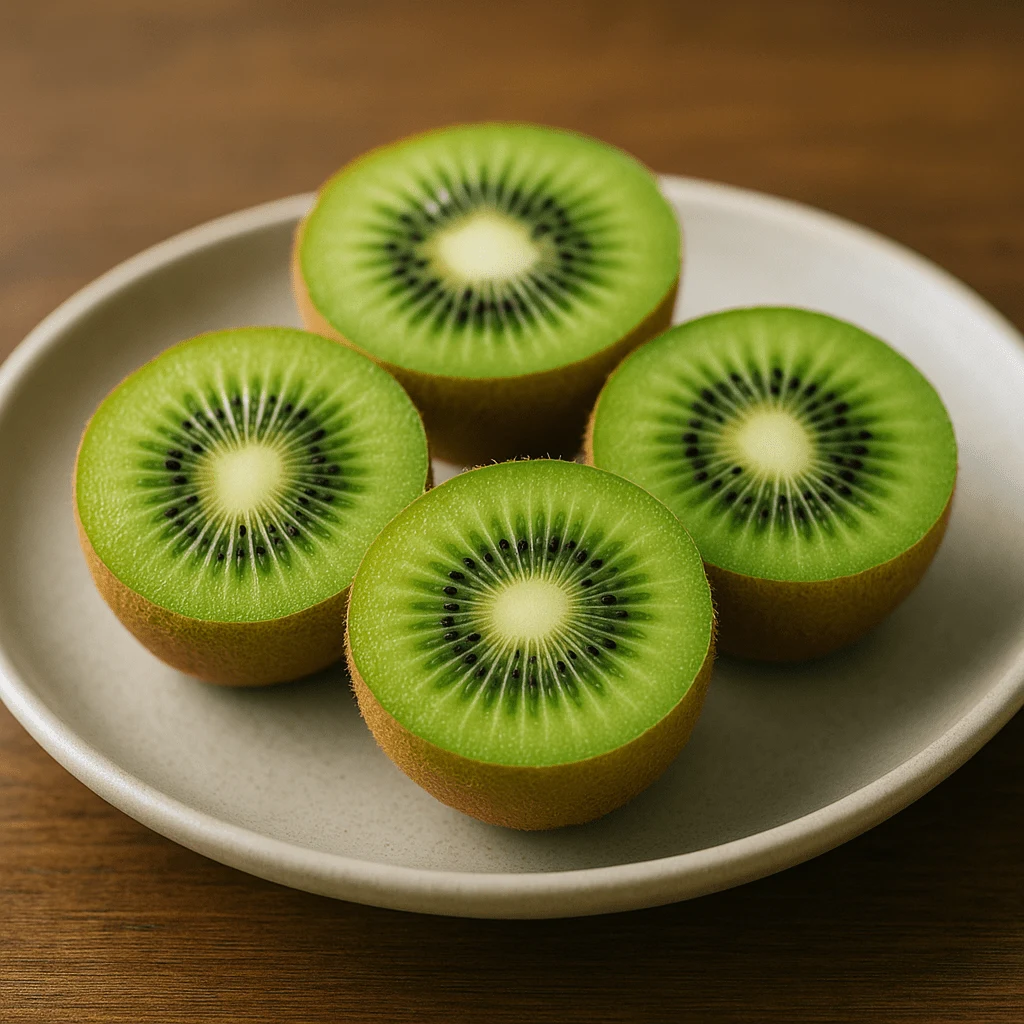
Kiwi might not look like a sleep superstar, but it packs a punch. It’s rich in serotonin and antioxidants, and a few small studies have shown that eating kiwi before bed can improve total sleep time and sleep quality.
How to eat it:
1–2 peeled kiwis about an hour before bedtime
Eat them fresh — the skin is edible, too, if you don’t mind a little fuzz
Fun fact: A study found that adults who ate kiwi before bed fell asleep faster and slept longer.
2. Tart Cherry Juice
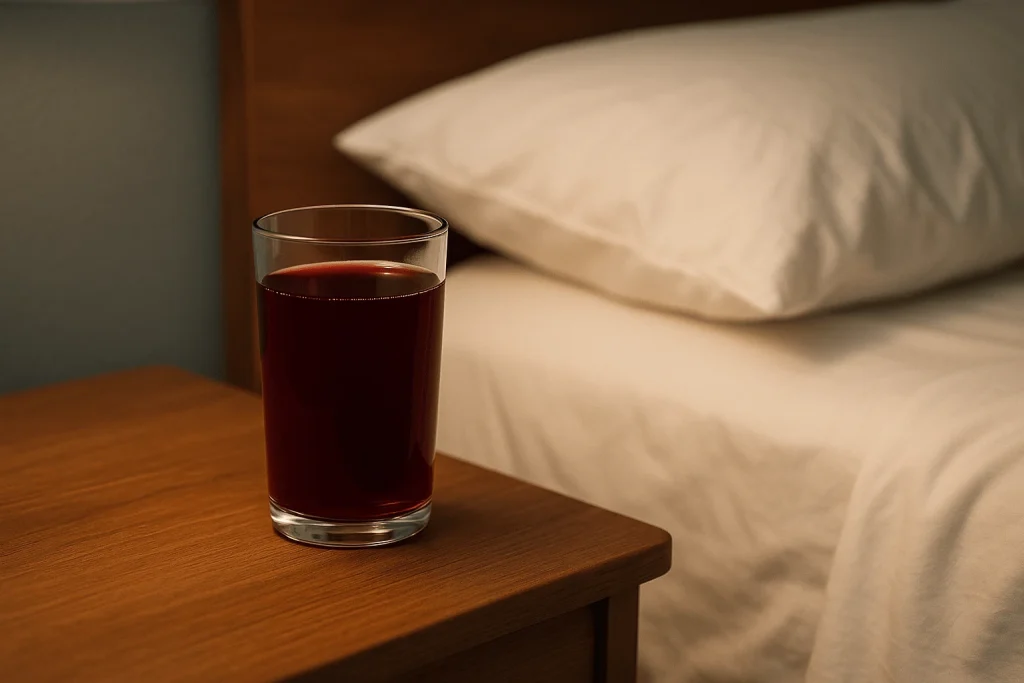
Tart cherries (especially Montmorency variety) contain natural melatonin — and drinking a small glass of tart cherry juice before bed has been shown to improve sleep duration.
How to use it:
- Drink about ½ to 1 cup of unsweetened tart cherry juice about an hour before bed
- Make sure it’s tart cherry, not sweet cherry — they’re different
Note: Tart cherries are anti-inflammatory, which may support better recovery while you sleep.
3. Pumpkin Seeds
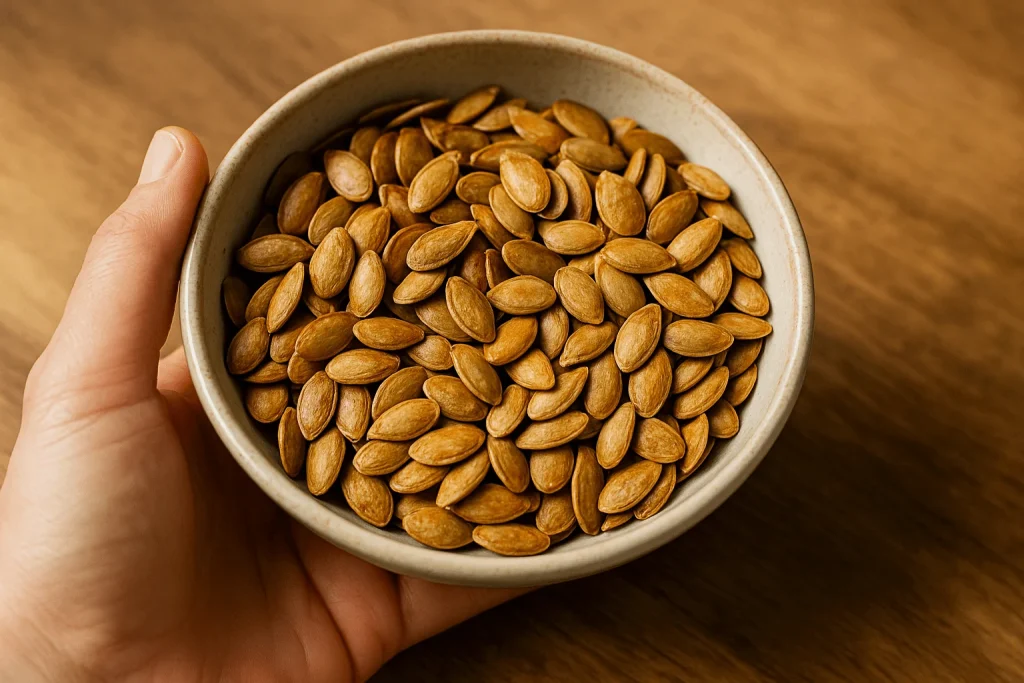
A small handful of pumpkin seeds gives you a solid dose of magnesium, which helps calm the nervous system and supports deeper sleep. They also contain zinc and tryptophan — a triple threat.
How to eat them:
- Snack on them roasted (lightly salted works fine)
- Add to yogurt, oatmeal, or a bedtime trail mix
4. Miso
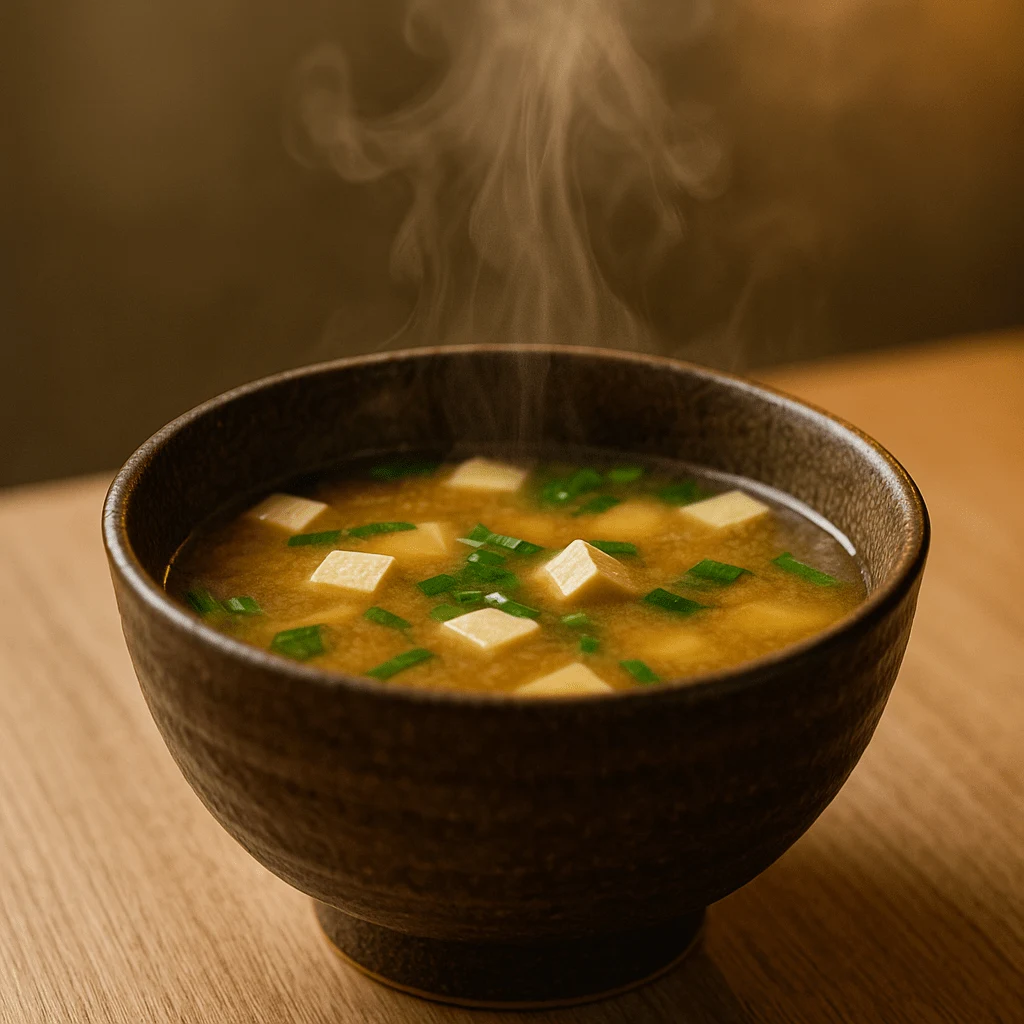
Miso, a fermented soybean paste used in Japanese cooking, is rich in probiotics that support gut health — and by extension, your sleep hormones like serotonin.
How to use it:
- Sip a small bowl of miso soup with dinner
- Avoid store-bought instant soups with additives — use real paste if possible
If you deal with bloating or indigestion at night, miso might help both your gut and your sleep.
5. Oats
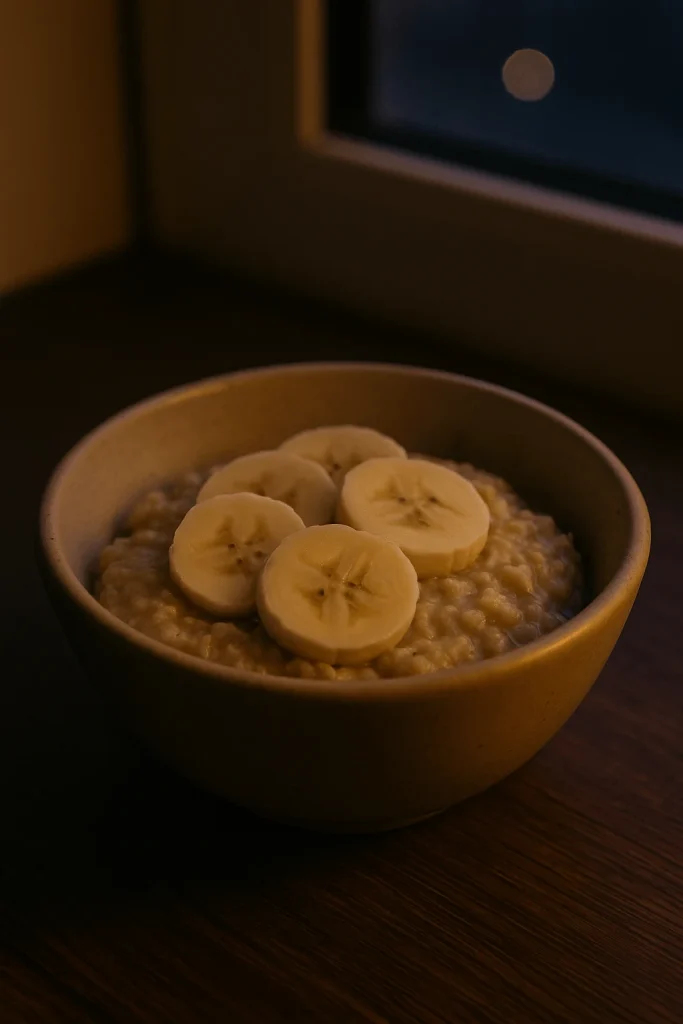
Oats are a natural source of melatonin and complex carbs, which help tryptophan cross the blood-brain barrier. That means oats can help kickstart your brain’s sleep chemistry.
How to eat them:
- Try a small bowl of oats or overnight oats with almond butter or banana
- Keep it light — too much fiber or sugar close to bed can backfire
6. Seaweed
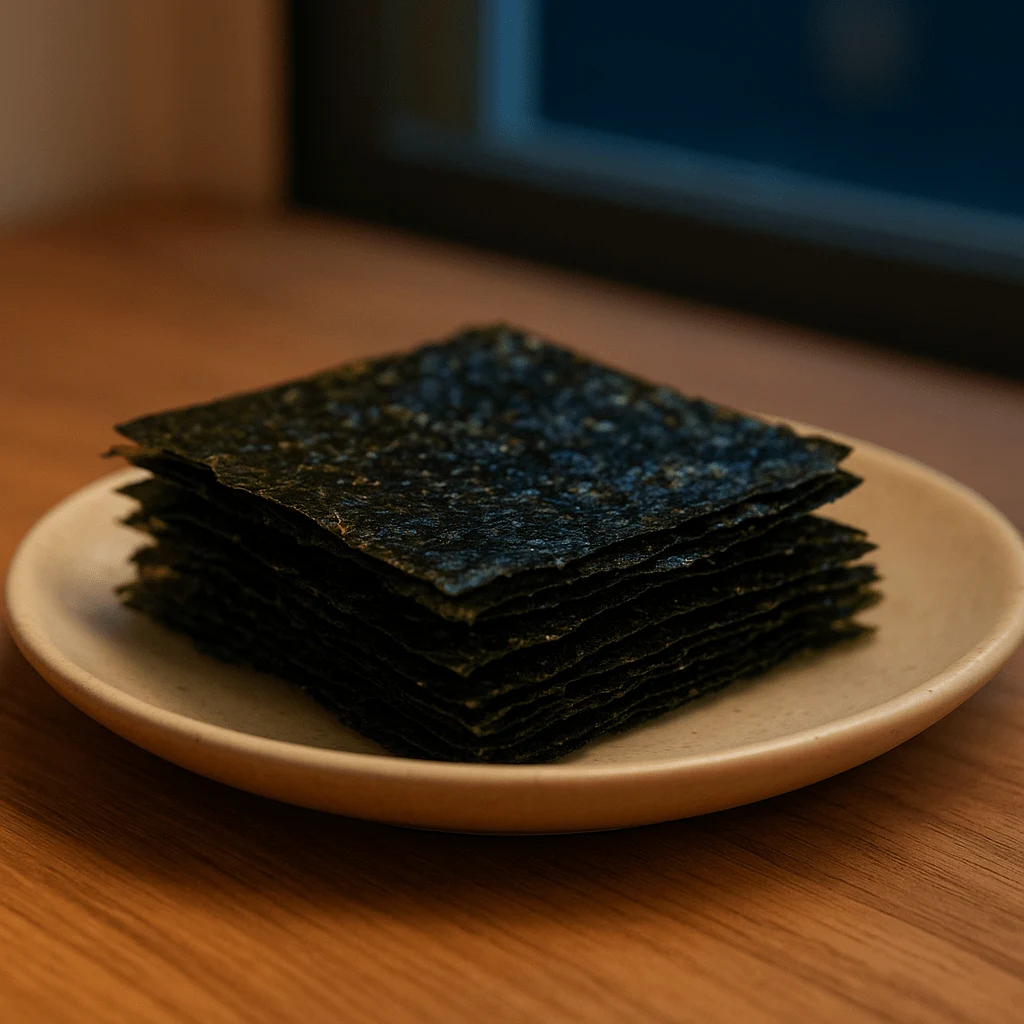
This one surprises a lot of people. Certain types of seaweed (like nori) are packed with magnesium, iodine, and tryptophan — all nutrients tied to sleep and hormone regulation.
How to eat it:
- Snack on roasted seaweed sheets
- Add nori flakes to soups, rice bowls, or avocado toast
Seaweed is especially helpful if your diet’s low in seafood or trace minerals.
7. Greek Yogurt
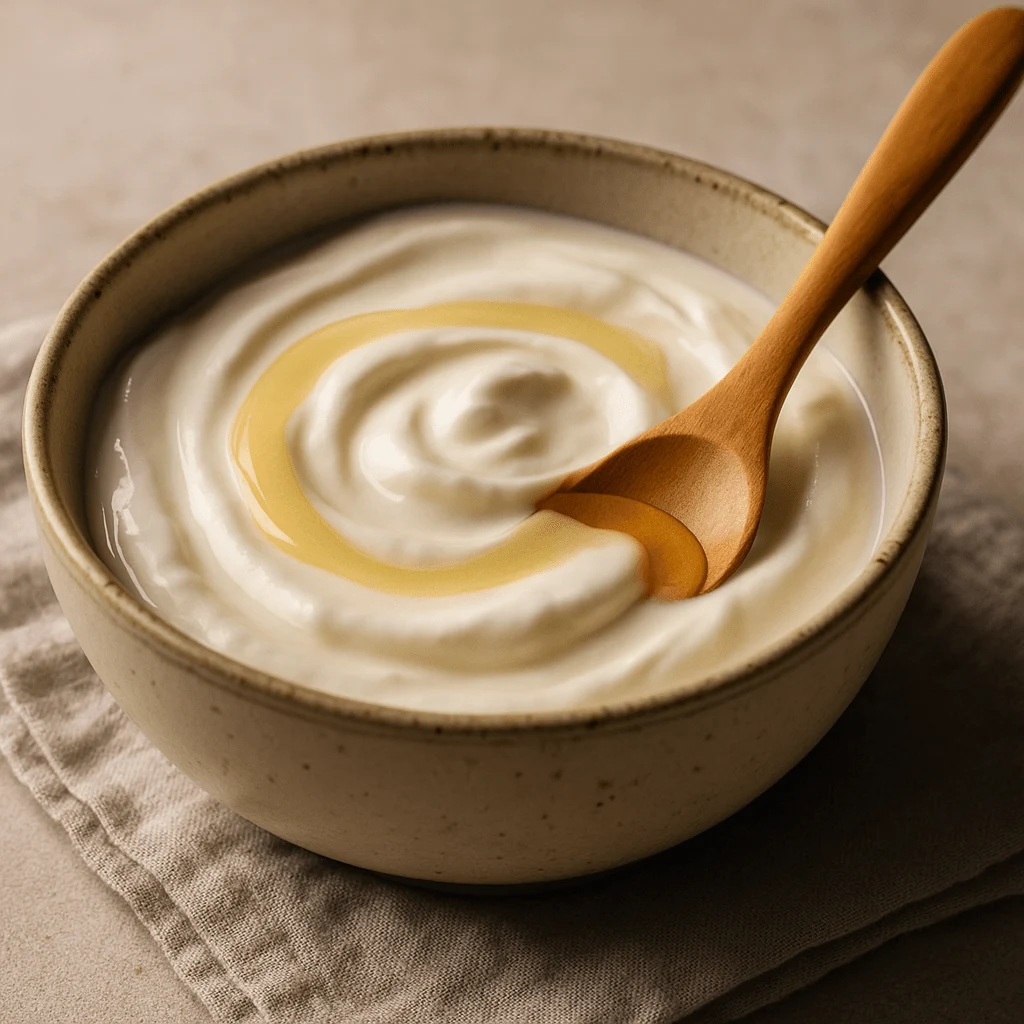
Calcium helps your brain convert tryptophan into melatonin — and Greek yogurt gives you a double dose of calcium and protein to keep you full and stable through the night.
How to eat it:
- Try a small serving with a spoon of honey or kiwi slices
- Avoid versions with added sugar or artificial flavors
8. Walnuts
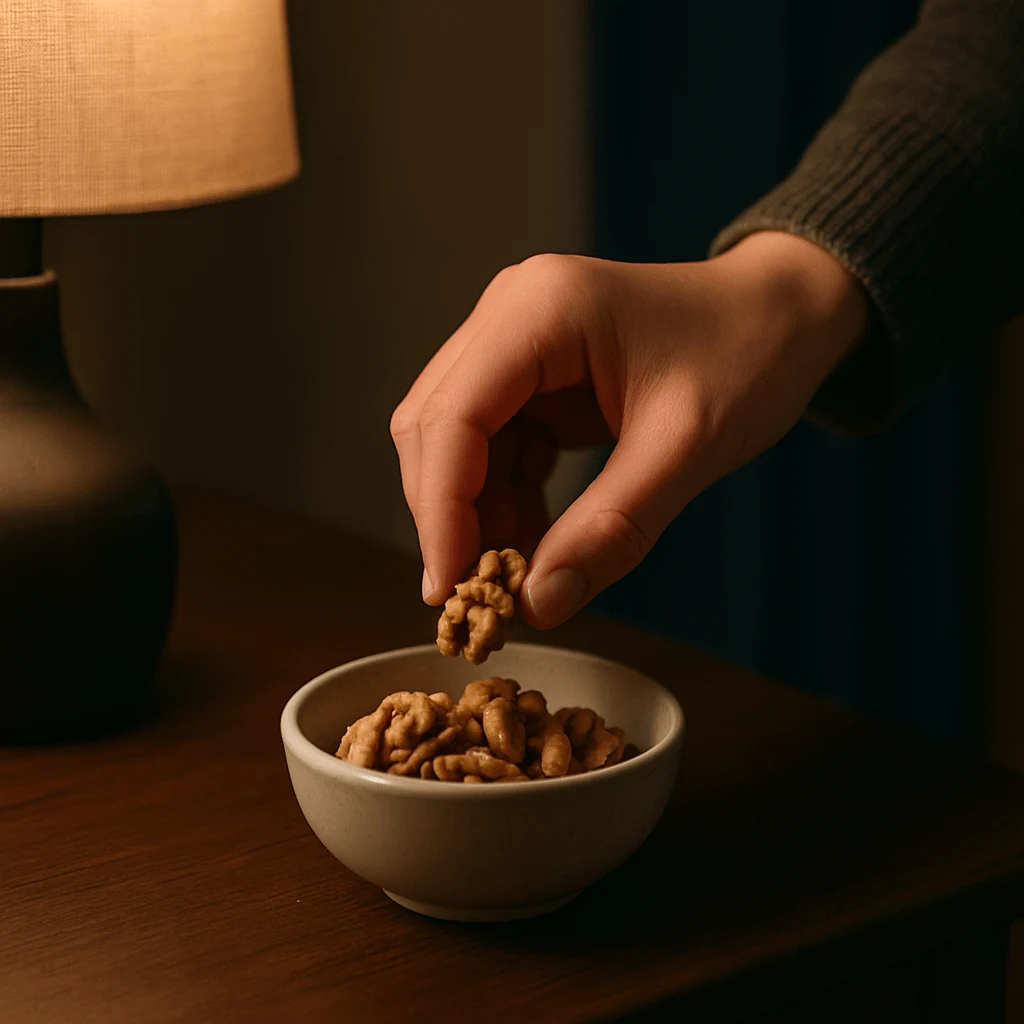
Walnuts contain melatonin, magnesium, and omega-3s — making them one of the best “mini bites” before bed.
How to eat them:
- A small handful is enough — too much fat can be too heavy late at night
- Pair with a date or slice of apple for a fiber boost
9. Turkey Jerky
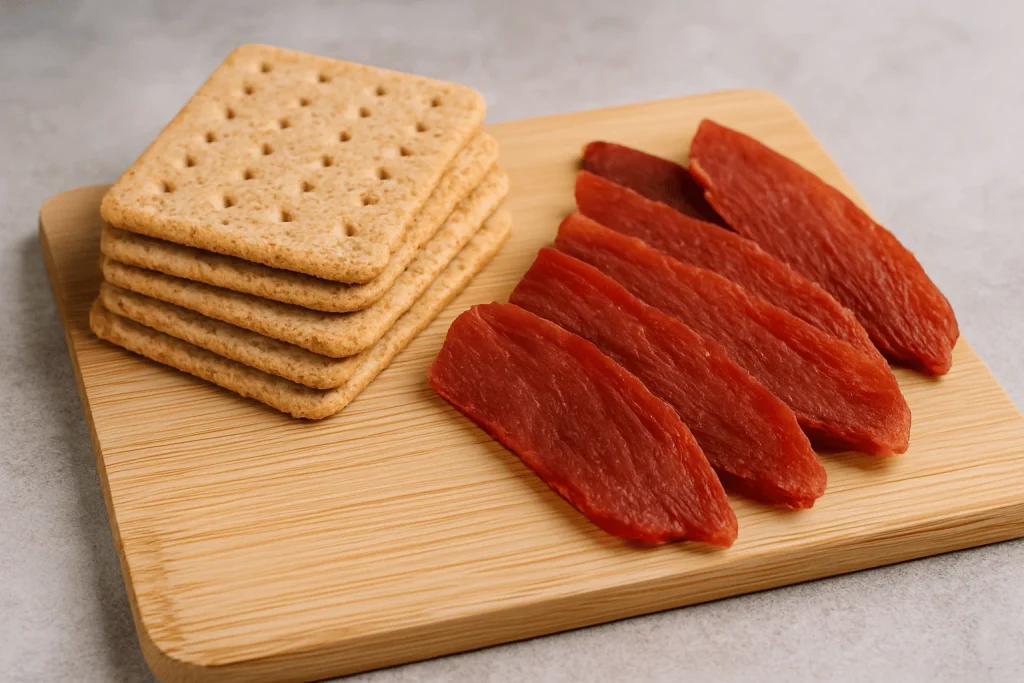
Turkey is famous for making people sleepy, and it’s not just a holiday myth. It’s rich in tryptophan, especially when paired with some carbs.
How to eat it:
- Keep a clean-label turkey jerky or lean turkey slices in the fridge
- Combine with whole-grain crackers for a simple pre-bed snack
10. Passionfruit
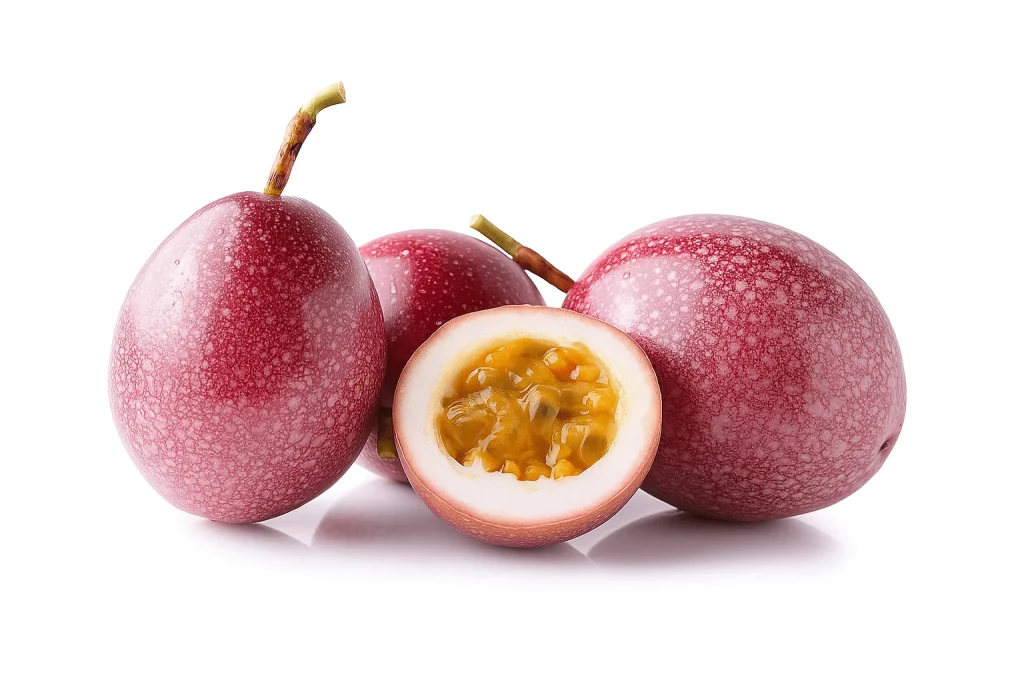
Passionfruit contains alkaloids that are believed to have mild sedative effects and support nervous system relaxation. It’s used in traditional sleep remedies across the world.
How to eat it:
- Scoop the pulp and eat straight
- Or add it to a small smoothie or herbal tea blend at night
If you’ve tried everything else, passionfruit might be a delicious new experiment.
Fruits, Drinks, and Herbs That Help You Sleep
If you want to stack the deck in your favor, certain fruits, bedtime drinks, and herbs can give your body an extra push toward better rest. These aren’t miracle cures, but when paired with the right habits, they can steer your body into a more sleep-ready state.
Fruits That Help You Sleep Naturally
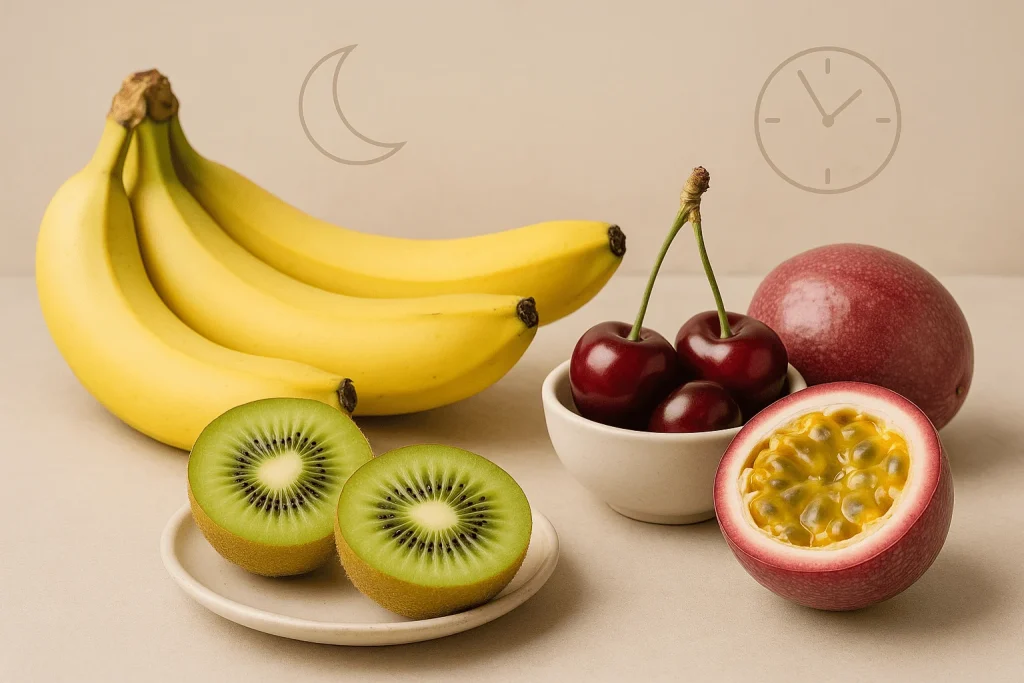
Fruits might not seem like sleep food, but a few specific kinds are packed with the very nutrients your body needs to unwind and reset.
Here are a few worth trying:
- Bananas – Loaded with potassium and magnesium, which relax muscles and calm the nervous system
- Kiwi – Already covered, but worth repeating — high in serotonin and antioxidants
- Tart cherries – Naturally rich in melatonin
- Passionfruit – Contains calming plant compounds that may ease sleep onset
✅ Best time to eat them: 30–60 minutes before bed, either alone or with a little protein/fat to balance blood sugar.
Drinks That Help You Sleep
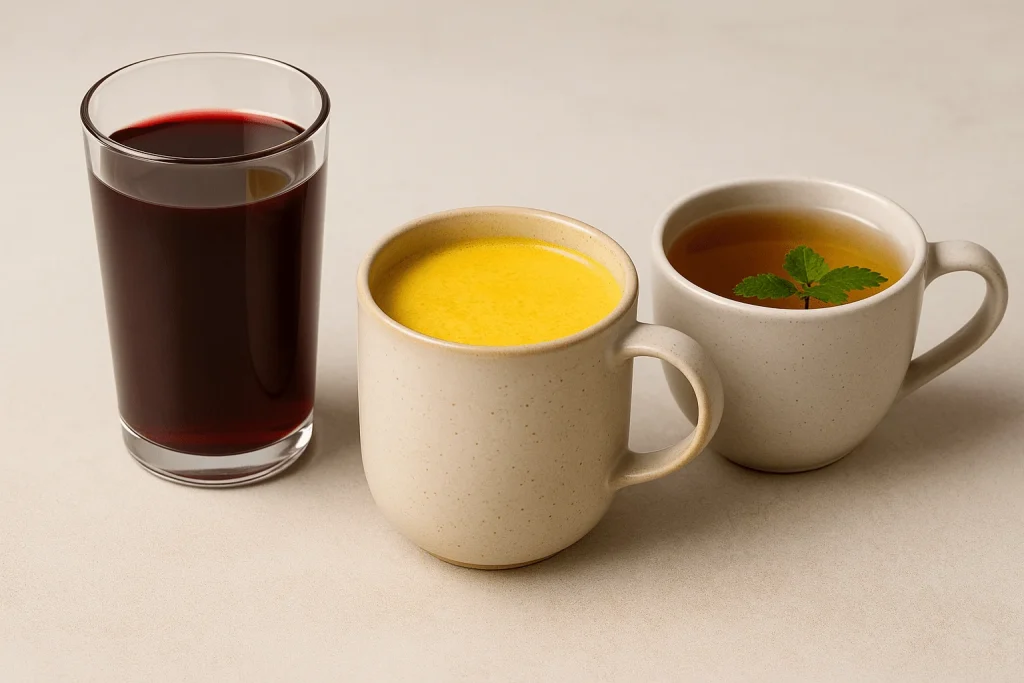
Some drinks do more than hydrate — they signal to your brain and body that it’s time to wind down.
Skip the sugary cocoa mix or alcohol and try these instead:
- Tart cherry juice – Mentioned earlier, this one’s a powerhouse
- Golden milk – A warm, turmeric-spiced milk drink that may reduce inflammation and help you relax
- Reishi mushroom tea – An adaptogenic (stress-regulating) tea known for calming the nervous system
- Warm lemon balm or passionflower tea – Both herbs have mild, soothing effects
Sip these about 60–90 minutes before bed — not right before, unless you like waking up at 3 a.m. for a bathroom trip.
Herbs That Help You Sleep
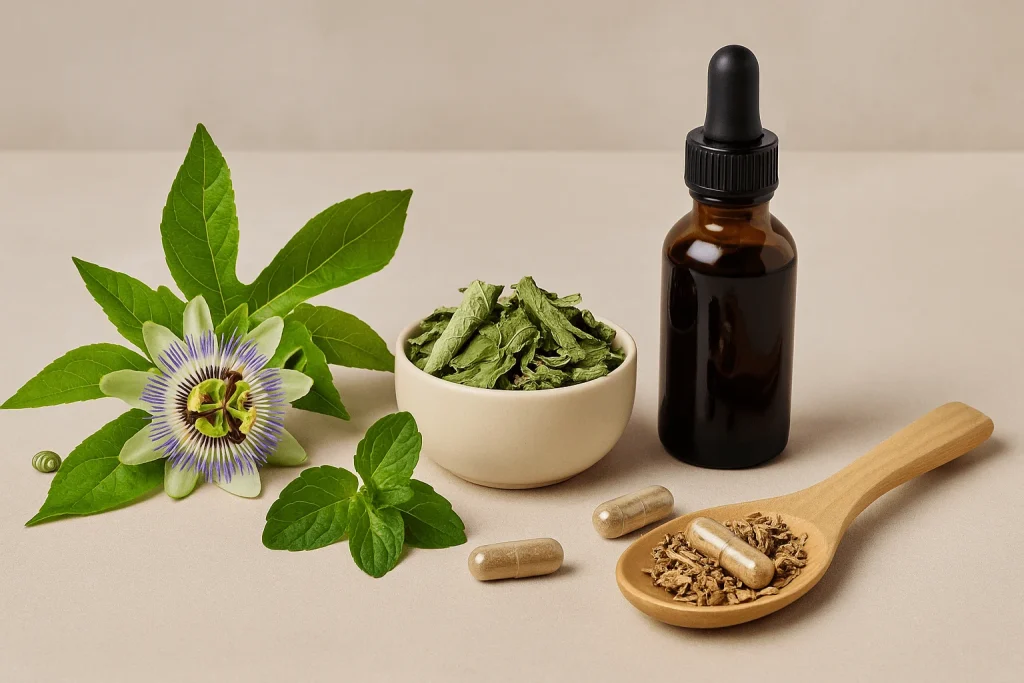
Many herbs used for centuries in traditional medicine are now being backed by modern science for their calming, sleep-supportive properties.
Try these:
- Passionflower – Often used in teas and tinctures to calm a racing mind
- Lemon balm – Shown to reduce anxiety and support restful sleep
- Tulsi (Holy Basil) – An adaptogen that helps regulate stress responses
- Valerian root – Stronger-acting and used as a natural sedative (though its smell is… memorable)
How to use:
- Tea form is most common (steep 10+ minutes for full effect)
- Tinctures or capsules can also work if the taste isn’t your thing
You don’t need all of these. Choose one or two that fit your routine and see how your body responds.
Related Post: 7 Herbal Teas for Sleep That Calm Your Mind Fast
When (and How) to Eat for Better Sleep Results
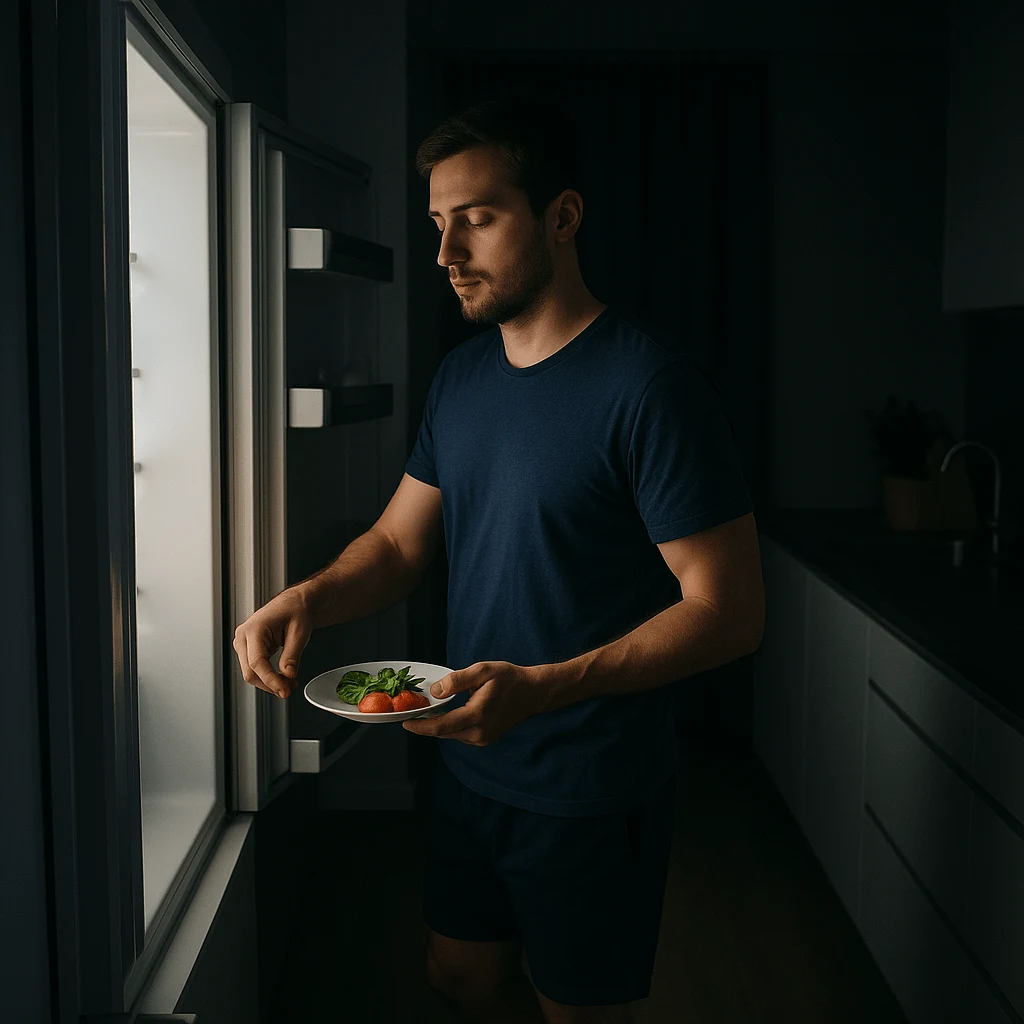
You could be eating all the right things… but if the timing is off, or your portions are too heavy, those foods might actually make your sleep worse — not better.
Here’s how to make smart food choices that actually support a smoother night’s rest.
1. Don’t Eat Too Close to Bedtime
Late-night meals — especially heavy or greasy ones — can lead to heartburn, restless sleep, or that wired-but-tired feeling. Give your body time to digest.
✅ General rule:
Finish your last full meal 2–3 hours before sleep.
If you’re hungry later, go for a small snack (more on that below).
2. Bedtime Snacks to Help You Sleep
A well-balanced nighttime snack can be the perfect sleep companion — especially if it helps regulate blood sugar and provides key nutrients.
🛎️ Sleep-friendly combos:
- Kiwi + Greek yogurt
- Banana + almond butter
- Turkey slices + whole grain crackers
- Tart cherry juice + a handful of walnuts
- Oatmeal with cinnamon and chia seeds
The key? Keep it light — 200–300 calories max — and avoid high sugar or ultra-processed ingredients.
Related Post: 10 Easy Bedtime Snacks That Help You Sleep Better
3. Combine Carbs + Tryptophan for Maximum Effect
Here’s a little-known trick: carbs help tryptophan reach your brain. That’s why pairing turkey with toast, or oats with yogurt, can boost your brain’s ability to make melatonin and serotonin.
Try this:
- Whole grains + protein (like crackers + turkey or oats + seeds)
- Fruit + fat (like banana + nut butter)
It’s one of the simplest ways to get more mileage out of sleep-promoting foods — without needing a supplement.
4. Keep It Consistent
Your body loves rhythm. That includes not just your bedtime, but your eating schedule, too.
- Try to eat dinner around the same time each night
- Avoid skipping meals (which can spike cortisol and mess with sleep hormones later)
- Limit caffeine after 2 p.m., and alcohol close to bedtime — both interfere with quality sleep
Final Thoughts:
Here’s the takeaway: getting better sleep doesn’t always mean overhauling your routine or reaching for a pill. Sometimes, it starts with something as simple as what’s on your plate.
Maybe tonight you try adding a kiwi to your routine — one of the simplest foods that help you sleep. Maybe you trade that late-night snack for a handful of walnuts, or pour yourself a small glass of tart cherry juice
It doesn’t have to be big or perfect. Just consistent.
So if sleep has been a struggle, start small. One food. One shift. And see what changes. Because better sleep isn’t out of reach — it might just be in your kitchen.
❓ FAQs About Sleep and Food
What’s the best fruit to eat before bed for sleep?
Kiwi and tart cherries are top contenders. Both are backed by research for their natural melatonin content and ability to improve sleep duration and quality.
Are there drinks that help you fall asleep faster?
Yes. Tart cherry juice, golden milk, passionflower tea, and reishi tea are some of the best natural drinks that support relaxation and melatonin production.
Do herbs actually help you sleep?
Many do! Herbs like lemon balm, passionflower, tulsi, and valerian root have calming or mildly sedative properties that support better rest when taken as teas or tinctures.
What should I eat when I can’t sleep at night?
If you’re awake and truly hungry, try a light, balanced snack with a mix of complex carbs and protein. Good options include:
- Half a banana with almond butter
- A few whole grain crackers with turkey slices
- Warm oats with a splash of milk and cinnamon
- Greek yogurt with a drizzle of honey
These foods can help calm your nervous system, stabilize blood sugar, and encourage natural melatonin release — without being too heavy or disruptive.
Should I eat right before bed if I’m hungry?
It’s okay — just keep it light. Choose a balanced snack with protein and complex carbs (like yogurt + banana or crackers + turkey). Avoid sugary or high-fat foods late at night.
Can these foods replace sleep supplements?
For many people, yes. These foods contain natural nutrients like tryptophan, magnesium, and melatonin — and can be a safer, more sustainable alternative to pills over time.
Related Post: A Beginner’s Guide to Sleep Supplements

